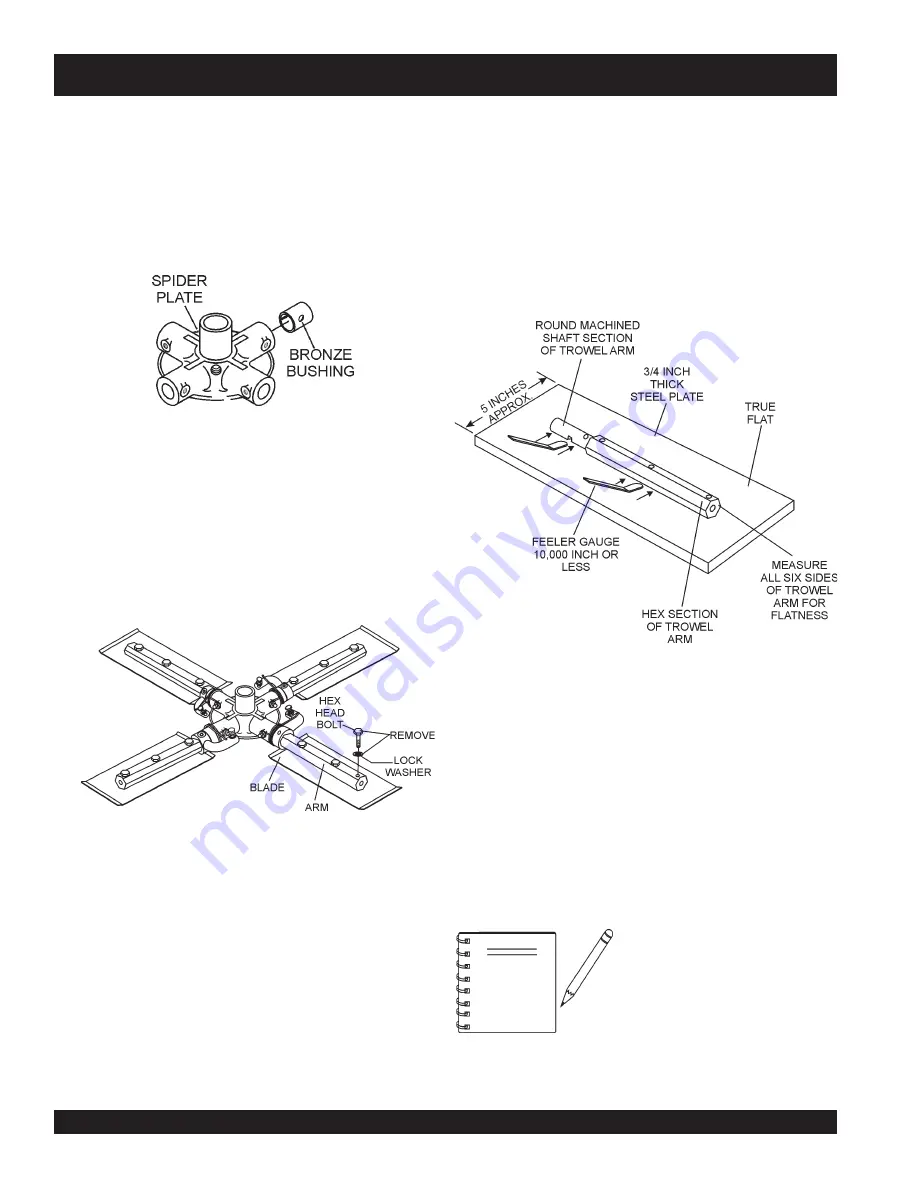
PAGE 30 — SCT SERIES WALK-BEHIND TROWEL— PARTS & OPERATION MANUAL — REV. #3 (03/30/05)
Trowel Arm Flatness Test
1. Using a piece of 3/4 inch thick steel plate or any surface which
is
true
and
flat
, check all
six sides
of each trowel arm for
flatness.
2. Check each of the six sides of the trowel arm (hex section
only) using a ten thousands of an inch (max.) feeler gauge
(Figure 40) between the flat of the trowel arm and an
ex
-
tremely flat
test surface.
3. If the trowel arm is found to be
uneven
or
bent
, replace the
trowel arm. A bent trowel will not allow the trowel to operate
in a smooth fluid rotation.
4. Next, check each of the six sides of the round machined shaft
section of the trowel arm. Each section should have the
same
clearance
between the round of the trowel arm shaft and the
test surface.
Figure 40. Trowel Arm Flatness Test
SCT SERIES TROWEL — MAINTENANCE
3. Should the trowel arm inserts (bronze bushing ) come out
with the trowel arm, remove the bushing from the trowel arm
and set aside in a safe place. If the bushing is retained inside
the spider plate, carefully remove the bushing.
4. Examine the bronze trowel arm bushing insert (Figure 38),
and clean if necessary. Replace the bushing if out-of-round
or worn.
Figure 38. Bronze Bushings
Trowel Blade Removal
1. Remove the trowel blades from the trowel arm by removing
the hex head bolts (Figure 39) from the trowel arm. The 36"
model will have two hex head bolts per arm and the 46" model
will have three hex head bolts per arm. Set blades aside.
Figure 39. Trowel Blades
2.
Wire brush
any build-up of concrete from all six sides of the
trowel arm. Repeat this for the remaining three arms.
Trowel arms can be damaged by
rough handling or by striking
exposed plumbing or forms while in
operation.
ALWAYS
look-out for
objects which might cause damage
to the trowel arms.
NOTE
































